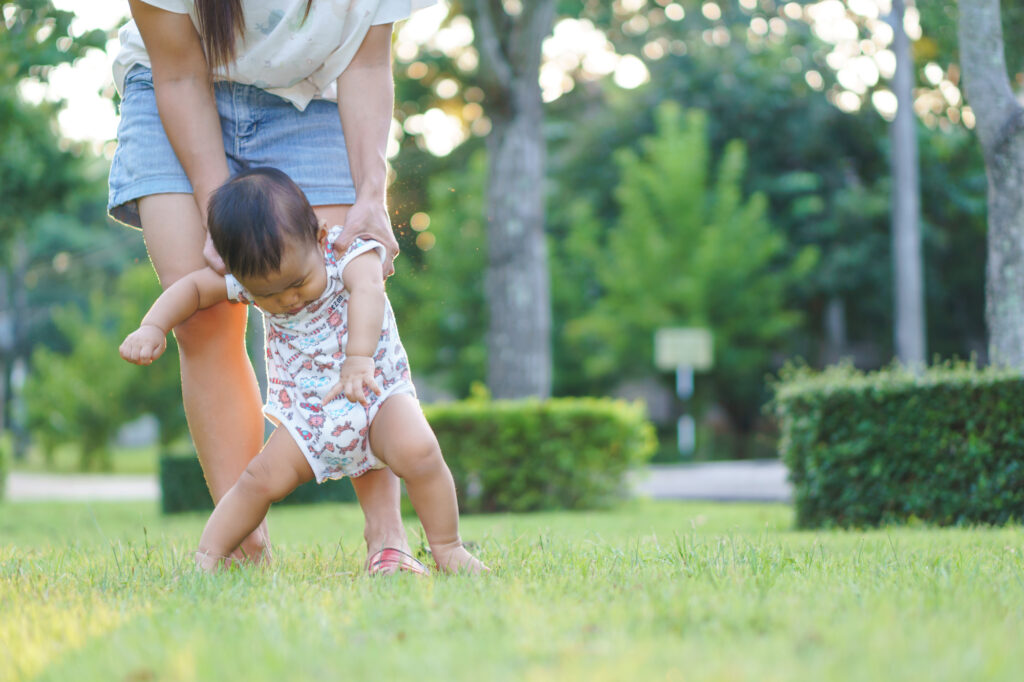There are many reasons why a baby does not walk according to set developmental milestones. Generally, babies may start walking anywhere between the ages of 9-15 months, but in some instances, some babies walk earlier, and some babies walk later than this range.
Generally, if a baby is not walking independently by 18 months, further assessment may be needed to understand why there is a delay and an underlying reason for this delay.
Walking is a gross motor skill involving the large muscles of the legs. Usually, in terms of infant development, it will be preceded by rolling over, learning to sit independently, crawling, standing independently, and using furniture or other props for cruising around the room.
Sometimes late walking may follow delay in other areas of an infant’s gross motor development. It may follow crawling late, as one example. It is not uncommon for infants to skip crawling, for example. Still, walking is an essential gross motor skill, and a delay in meeting it is bound to trigger concern in parents and caregivers alike if a child has completed, even if with a slight delay, their other major gross motor milestones there may not be immediate cause for concern when it comes to a late walker.
Some of the main reasons for late walking in babies and toddlers are:
- Hereditary: there may be a link between parents who walked later and consequent delay in their own children’s walking. Some infants walk later, and often there are no underlying causes.
- Personality: some infants are in no rush to get walking, and some are more cautious with taking risks needed to master independent walking. They may be content with taking their time and learning developmental steps in their own time. While not measurable as a reason, it is an anecdotal reason for late walking in some infants.
- Environment: babies who may have suffered illness or long-term hospitalization at a young age may not have had the opportunities to move and practice their gross motor skills that aid walking. Infants in environments where they are not given the opportunities to move, play on the floor, and use their developing gross motor skills may also experience a delay in walking. Infants must be given opportunities to move and play and do not spend extended periods in carriers (strollers, baby chairs) that limit their ability to move.
- Prematurity: babies born early may meet all of their developmental milestones slower. Usually, and depending on the extent of prematurity, babies born early should be tracked against the milestones for their due date and not the date they were born.
- A rare disease or genetic syndrome: sometimes a walking delay (combined with other gross motor delays) may be a rare disease sign or symptom. Examples of these include Barth syndrome, Rett syndrome, and Russell-Silver syndrome. If a rare disease is suspected, genetic analysis may be recommended to determine the cause of gross motor delay in a child.
- Underlying health or physical condition: hypotonia (low muscle tone) is a major cause of walking delay in infants. Hypotonia may also present with a rare disease, Williams’ syndrome as one example. Walking delay is also a sign of mild cerebral palsy.

In most cases, a delay in walking, without delays in any other areas of an infant’s development, does not cause concern. Some infants require more stimulation and encouragement to master the skill for themselves.
If you have any concerns about your child’s development, including their walking skills, or indeed concerns about any of their gross motor skills, the first person to contact is your family doctor. Understanding the reasons behind late walking in babies can help alleviate concerns and guide you in supporting your child’s development.



